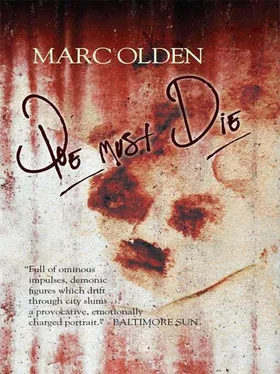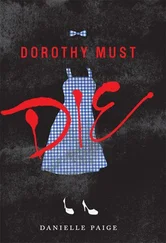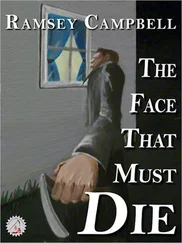Marc Olden - Poe must die
Здесь есть возможность читать онлайн «Marc Olden - Poe must die» весь текст электронной книги совершенно бесплатно (целиком полную версию без сокращений). В некоторых случаях можно слушать аудио, скачать через торрент в формате fb2 и присутствует краткое содержание. Жанр: Триллер, Исторический детектив, на английском языке. Описание произведения, (предисловие) а так же отзывы посетителей доступны на портале библиотеки ЛибКат.
- Название:Poe must die
- Автор:
- Жанр:
- Год:неизвестен
- ISBN:нет данных
- Рейтинг книги:5 / 5. Голосов: 1
-
Избранное:Добавить в избранное
- Отзывы:
-
Ваша оценка:
- 100
- 1
- 2
- 3
- 4
- 5
Poe must die: краткое содержание, описание и аннотация
Предлагаем к чтению аннотацию, описание, краткое содержание или предисловие (зависит от того, что написал сам автор книги «Poe must die»). Если вы не нашли необходимую информацию о книге — напишите в комментариях, мы постараемся отыскать её.
Poe must die — читать онлайн бесплатно полную книгу (весь текст) целиком
Ниже представлен текст книги, разбитый по страницам. Система сохранения места последней прочитанной страницы, позволяет с удобством читать онлайн бесплатно книгу «Poe must die», без необходимости каждый раз заново искать на чём Вы остановились. Поставьте закладку, и сможете в любой момент перейти на страницу, на которой закончили чтение.
Интервал:
Закладка:
Poe, licking his lips, stared at several bottles of alcohol on a sideboard near a bookcase. He wanted …
Then he tore his eyes away, focusing on Figg. “We have work before us, Mr. Figg, for which a clear head is most desirable. Let us be gone from here and God be with us, for we will both have need of Him before this matter is resolved.”
NINETEEN
Manhattan is a thin island thirteen miles long and no more than two and a half miles at its widest point. By 1840, this finger-shaped piece of land contained the world’s worst slum-Five Points-which surpassed the urban horrors to be found in London, Paris or Calcutta. Located at the base of Manhattan and within walking distance of City Hall, Five Points was the name give to the area where five streets-Cross, Anthony, Little Water, Orange and Mulberry-met. By 1848, names and sizes of the streets had changed, but Five Points remained. Now it was the most dangerous place in New York City.
At the beginning of the nineteenth century, Five Points did not exist. The area had been swamp and marshland until Manhattan’s increasing population, with its resultant demand for living space, forced New York City to drain that land and fill it with earth. Five Points then enjoyed a brief respectability. But because the swamps and marshes had been poorly drained, the tenements above began to slide and collapse into the ground and those families who could afford to move did so quickly.
Those remaining or now entering Five Points were people destined to exist in terrible poverty. Crime as a means of survival was inevitable and the Irish, who formed the majority, were the most visible as murderers, thieves, gamblers and purveyors of the casual violence which became a part of New York City early in its history.
Irish gangs ruled the streets and vice of Five Points under names such as the Kerryonians (from County Kerry), Shirt Tails, Roach Guards, Plug Uglies, Black Birds, Chichesters. In five-story tenements of old and rotting wood, Irish and Negroes lived without heat, gaslight or running water, in buildings on the verge of tumbling into streets where the mud was knee deep when not covered by garbage or packs of wild pigs.
The decaying structures were connected by tunnels which were the site of horrible crimes, in addition to being escape routes for those slum dwellers who had murdered and robbed, thereby bringing down unwanted attention on themselves. Within the tenements, behind windows patched with rags, lived starving men, women and children who endured their miserable existence by staying drunk as often as possible. They fought rats and each other to stay alive in buildings with names like Bucket of Blood, Dead Man’s Place, Gates of Hell, Knife in the Throat. They survived by any means imaginable and at the expense of each other.
Along with grinding poverty, vice was everywhere in Five Points. There were brothels, dance halls, rum shops, gambling rooms and green groceries, supposedly selling vegetables but actually selling homemade whiskey that was as much a health hazard as a stroll through the streets of Five Points alone on a dark night.
Dominating Five Points was the Old Brewery, called Coulter’s Brewery when built in 1792. By 1837, the huge five-story wooden building was ugly and decrepit, surrounded by the horror of Five Points and occupied by more than a thousand Irish and Negro men, women and children who lived in constant danger. The danger came not only from the surrounding slum but from the inhabitants of the brewery, who had no qualms about preying on one another. It was a population of murderers, prostitutes, thieves, and beggars all desperate enough to do anything, all living in shocking sexual licentiousness and decay.
Though it was said for many years that one person was murdered daily inside of the Old Brewery, the crime invariably went unpunished, for police avoided the building out of fear for their own lives. If on rare occasions police did enter the mammoth, foul-smelling structure, it was always in force, with almost no chance of capturing an offender well acquainted with the hidden tunnels and passageways.
Jonathan had come to the Old Brewery to kill Hamlet Sproul’s woman, Ida Sairs, and the two children she’d borne the grave robber. The slum held no terror for Jonathan, for he had completed the ritual.
In the night, Jonathan was a noiseless shadow, travelling as silently as smoke, bringing death to those he had marked for sacrifice, for revenge.
For you, Asmodeus. Their deaths I lay at your feet. Grant me time, demon king, to find the throne, to make the dead Justin Coltman speak.
Ida Sairs, small, with red hair parted and pulled tightly back into a bun, her pale, thin face spotted with freckles, knelt on the floor of her room in front of a bucket of burning charcoal, using a foot-long wooden stick to poke at a piece of blackened pork which was to feed herself and the two boys, aged two and three. When the meat was done, she would heat what was left of the coffee, which would taste of roast peas and chicory and for a sweet there would be hard, stale bread covered in molasses. Not a feast for a king but at least it was something in the belly. She would have liked a pail of beer, but there was not a coin to waste on something like that. Be patient, Hamlet had said. His fortune would soon change and there would be beer to bathe in. Yes, there would be that indeed.
She looked over at the boys. They sat on the bare floor watching the burnt pork and bright red charcoal beneath it, their faces slack jawed with hunger, their eyes gleaming as do the eyes of starving children anywhere in the world. Ida was eighteen, barefoot in a ragged blue dress, with a half of a tattered blanket around her shoulders for warmth in the unheated room. No fireplace, two buckets in the corner for slops and waste, and water to be carried upstairs three flights in two more buckets. Be patient, Hamlet had said. Be patient, dearest Ida, for you have my love and shall soon have me money and plenty of it. Dearest Hamlet. He was one of too many men she had been with since she was nine, but he alone didn’t beat her. He alone loved her and she desperately loved him in return.
Ida Sairs stood up, turned and swallowed a scream as she saw the cloaked figure reach out for her.
Jonathan slashed her throat, choking off any sound.
She fell to her knees, hands at her pained throat, hands wet with her own blood. The pain in her neck savagely attacked her skull and she knew she was in hell, with no idea as to how it had happened. Her mouth was open and in vain she willed herself to scream that no harm should come to her children.
Jonathan, sensing what she was trying to say, shook his head.
“Their lives are forfeit,” he whispered. “Their lives have been promised to him who threatens mine.”
Ida Sairs, wide-eyed and dying, fell to the floor and Jonathan stepped over her bleeding body, his blood red scalpel pointing towards the two dirty-faced boys who had not taken their eyes from the pork blackening in the bucket of burning charcoal.

Later that night, a nervous Rachel whispered, “I beg of you, Dr. Paracelsus, the truth. You have pledged to me that my husband lives. Does he?”
Jonathan closed his eyes, white-gloved hands palms down on the black marble-topped table between him and the anxious woman. “Justin Coltman lives. I, Paracelsus, tell you that he exists, but in a world not of this world; he lives unseen among the unseen. You have never questioned me before, Mrs. Coltman. Why do you doubt me now?”
“I–I am here to, to-”
She hesitated. Order me to believe in you. Remove my doubts. Paracelsus, a huge figure in white, sat across from her in the dark room quietly waiting for her to speak and for the first time, Rachel felt unsure of him.
Читать дальшеИнтервал:
Закладка:
Похожие книги на «Poe must die»
Представляем Вашему вниманию похожие книги на «Poe must die» списком для выбора. Мы отобрали схожую по названию и смыслу литературу в надежде предоставить читателям больше вариантов отыскать новые, интересные, ещё непрочитанные произведения.
Обсуждение, отзывы о книге «Poe must die» и просто собственные мнения читателей. Оставьте ваши комментарии, напишите, что Вы думаете о произведении, его смысле или главных героях. Укажите что конкретно понравилось, а что нет, и почему Вы так считаете.











